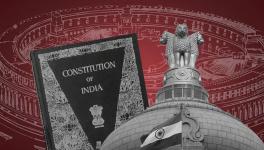Wanted: Innovative Approach for Resolution of Domestic Commercial Disputes of Low-Value Claims Post COVID-19

Image Source: Legal Era
Online Dispute Resolution (ODR) has emerged as a knight in shining armour for justice delivery in COVID-19 times. Yet, the challenges on court dockets will only increase as courts have been functioning at a lower capacity. DORMAAN J. DALAL argues for adopting ODR to reduce litigation burden on Indian courts in A post-COVID world.
———
The exponential increase in the use of the internet and e-commerce in India calls for urgent measures by policymakers to ensure that the justice delivery system ensures quick and effective dispensation of qualitative justice in digital India.
The devastation caused by COVID-19 has resulted in unwillingness for justice seekers to opt for traditional methods of dispute resolution particularly in commercial disputes of low-value claims between private individuals or entities. Therefore, there is a need to aggressively promote Alternate Dispute Resolution (ADR), not in its physical form but in a virtual form to adapt to the ‘new normal’.
In April 2020, the Vidhi Centre for Legal Policy published a Strategy Paper on Virtual Courts in India which provided decision-makers and stakeholders perspectives on how to approach the “mammoth task of technology integration” in the legal system. The paper minces no words while dealing with the impact of the COVID-19 pandemic on the judiciary. It notes as under,
“The response to the pandemic makes it clear that the judiciary was caught off-guard with regard to technology integration into its routine functioning despite the availability of digital infrastructure. The functioning of most district courts has been suspended during the lockdown period and where courts are functioning, hearings are restricted to extremely urgent matters. Depriving access to the district judiciary which is the first point of contact for most litigants in the country, compromises the rights of the vast majority of citizens in the country.”
Shortly after the April 2020 Strategic Paper was published, Vidhi Centre published a report in July 2020 titled, “ODR- The Future of Dispute Resolution in India”, which threw up some concerning figures.
The report records that at present, 33.47 million cases are pending before the district judiciary and 4.46 million cases before the High Courts.
It seems difficult for the judiciary to single-handedly take measures to digitalise its working, particularly due to its inability to access funds from the national exchequer.
The vacancy of judges is 35.6% in the High Courts and 21.4% in the district judiciary.
Juxtapose these figures with the fact that as of 2016, India’s Internet users constituted 34.8% of the population or 462 million people with the number of e-transactions having increased from 2,28,75,663 in 2013 to 84,57,91,377 in 2018 and it certainly is a cause for major concern.
This is not to say that efforts have not been made to digitalise the judiciary.
Way back in 1990, computerisation was initiated by the National Informatics Centre (NIC) for the Judiciary. After this, in 2005, the Supreme Court constituted the E-Committee for Monitoring the Use of Technology and Administrative Reforms in the Indian Judiciary (E-committee), fifteen years later.
The eCourts project’s greatest accomplishment has been the creation of the National Judicial Data Grid (NJDG).
However, Vidhi’s Strategy Paper reveals that in 2019, only 600 filings were done through the e-filing module in the High Courts of Punjab and Haryana and only about 50 e-Filings were done in the Delhi High Court. The strategy paper said: “Though existing e-filing infrastructure exists, unfriendly user interfaces, lack of training for actual users to competing interests within the registry could be the reason for underutilisation.”
It seems difficult for the judiciary to single-handedly take measures to digitalise its working, particularly due to its inability to access funds from the national exchequer.
An innovative ‘out of the box approach’ would be to adjudicate commercial disputes in India of low-value claims ranging from Rs. 1 Lakh to Rs. 1 Crore through domestic arbitration.
In fact, mediation can be used for the settlement of disputes under the Insolvency and Bankruptcy Code, 2016 (IBC) through the National Company Law Tribunal (NCLT).
Though other modes of ADR such as mediation, conciliation, and negotiation are being aggressively promoted in legal circles across India, so far as domestic commercial disputes are concerned, arbitration is still a preferred mode of settlement of disputes in corporate India.
This by no means undermines the effectiveness of mediation in commercial disputes. In fact, mediation can be used for the settlement of disputes under the Insolvency and Bankruptcy Code, 2016 (IBC) through the National Company Law Tribunal (NCLT).
However, the difficulties have been faced by courts and tribunals across the country in conducting existing matters through video conferencing. Divesting Online Dispute Resolution and domestic arbitration in particular from the traditional court system would go a long way in ensuring effective settlement of commercial disputes of low value claims.
The traditional court annexed ADR should give way to a modern online cloud-based system.
Steps Taken By Other Jurisdictions For Court Based Global ODR Systems During Covid-19
Innovative methods have been adopted by certain jurisdictions to ensure that the justice delivery system was not paralysed.
The United Kingdom for instance enacted the Coronavirus Act 2020 that enables the use of full audio and video-enabled courts for conducting proceedings with all parties at remote locations given the emergency situation.
Divesting Online Dispute Resolution and domestic arbitration in particular from the traditional court system would go a long way in ensuring effective settlement of commercial disputes of low value claims.
The Supreme People’s Court of China, the Apex Court of China, ordered: “courts at all levels to guide litigants to file cases or mediate disputes online, encouraging judges to make full use of online systems for litigation, including those for case filing and ruling delivery, to ensure litigants and their lawyers get better legal services and protection.”
The Department of Justice, the Government of the Hong Kong Special Administrative Region has announced the COVID-19 Online Dispute Resolution Scheme. Under this Scheme, a multitiered ODR process is being developed to resolve disputes arising out of COVID-19, especially for those involving micro, small and medium-sized enterprises (MSMEs).
In the United States, efforts are increasingly being made to hear matters through telephones and videoconferencing. Courts in New York, in particular, have most recently expanded the virtual courts model (which primarily features videoconferencing) from only essential matters to include non-essential pending matters.
Unlike some of the other countries, India has not brought in an ODR scheme for disputes that have arisen due to the COVID-19 pandemic.
In Ontario, the Supreme Court of Justice has extended video and teleconferencing from urgent matters to all matters. E-filings are being permitted using electronic signatures.
The Supreme Court of Singapore has also issued guidelines for using audio and video conferencing for hearing matters using Zoom. It has introduced the COVID-19 (Temporary Measures) Act 2020, which now allows court proceedings to be conducted using remote communication technology (e.g. teleconference, video conference, and email).
India’s Response To The Covid-19 Pandemic And The Tinkering With The IBC
High Courts and the Supreme Court took immediate steps to ensure that at least urgent matters were being heard by video conferencing. However, no executive order or legislation was introduced to specifically cater to the problems caused to litigants by COVID-19.
Unlike some of the other countries, India has not brought in an ODR scheme for disputes that have arisen due to the COVID-19 pandemic.
The RBI issued a circular and directions to grant a moratorium on payment of installments of term loans falling due between March 1, 2020, and May 31, 2020 (which had been extended up to August 31). The said circular has also become the subject matter of a dispute that is presently pending in the Supreme Court on the waiver of interest.
With respect to executive actions, perhaps the most significant steps taken by the government pertaining to commercial disputes pertaining to the Insolvency and Bankruptcy Code, 2016. The responses have been two-fold:
- Issuing a notification under Section 4 of the IBC dated 24th March 2020 by which the minimum amount of default to initiate insolvency proceedings under IBC was increased from Rs. 1 Lakh to 1 Crore.
- Promulgating the Insolvency and Bankruptcy (Amendment) Ordinance 2020 on 25th March 2020 which was subsequently repealed by the Insolvency and Bankruptcy Code (Second Amendment) Act, 2020 on September 23. The Amendment Act introduced Section 10A to the IBC which prohibited any application to initiate the corporate insolvency resolution process (CIRP) for any default on or after 25th March 2020 for a period of 6 months extendable up to one year. The proviso to the section further prohibits CIRP from ever being initiated during the aforesaid period.
Despite all the criticism that surrounded the IBC, the Code appears to have been a game-changer, particularly for the recovery of admitted dues. Though the IBC was never meant to be used as a money recovery proceeding, it has proved to be extremely beneficial to Small and Medium enterprises who have been able to recover pending dues.
Though the IBC was never meant to be used as a money recovery proceeding, it has proved to be extremely beneficial to Small and Medium enterprises who have been able to recover pending dues.
As recently as October 14, 2019, the Economic Times reported that “in the last three years” (2016 to 2019) “21,000 cases have come to the IBC, out of which nearly 10,000 cases have been settled. Of this, 8,500 cases prior to admission and about 1,500 cases resolved. Over 1,500 cases are under process.”
According to a Reserve Bank of India (RBI) report, the recovery rate of the IBC is 42 percent against 10-18 percent in earlier regimes.
Although the notification dated March 24, 2020, was meant to protect corporate debtors from proceedings initiated against them during COVID-19, the effect of raising the threshold from Rs. 1 Lakh to Rs. 1 Crore has relegated creditors, particularly small time operational creditors to regular Civil and Criminal Courts.
While in normal times these proceedings would take a minimum of three to five years at the trial stage itself, in these present times of the pandemic, there is no saying how long proceedings for recovery of claims and dues are likely to take place. Therefore, it is necessary for the government to step in and fill the void created by the notification dated March 24, 2020.
The Raison D’etre For Focusing On Domestic Arbitration
With the sudden onset of the COVID-19 pandemic, the legal circles have been clamouring to propel the growth of commercial mediation in India, particularly due to the adverse impact the pandemic has had on the functioning of physical courts.
However, in a country that is not accustomed to the “handshake culture” of doing business where a person’s word is taken at face value, would it be advisable to relegate all commercial disputes solely to mediation?
It is well known that mediation is a voluntary process. In a country where the word “voluntary” is an anathema, parties always prefer a judicial authority like a court or tribunal or authority invested with quasi-judicial power like an arbitrator to settle their disputes. Therefore, would it be advisable to adopt a hybrid approach moving forward with online arbitration as the primary mode of settlement of the dispute?
Arbitration has generally been a preferred mode of dispute resolution in Corporate India.
A 2013 report by PricewaterhouseCoopers (PwC) throws up interesting figures on the attitude of Corporate India towards arbitration. 91% of the companies surveyed in India, who have a dispute resolution policy, include arbitration and not litigation for resolution of future disputes.
However, in a country that is not accustomed to the “handshake culture” of doing business where a person’s word is taken at face value, would it be advisable to relegate all commercial disputes solely to mediation?
Majority of the companies that experienced arbitration preferred ad-hoc arbitration (47%) over institutional arbitration (40%) while 12% indicated a neutral approach. 82% of the companies with arbitration experience indicated that they would continue to use arbitration in future disputes. Moreover, 46% of the companies with no arbitration experience stated that they would be open to using arbitration in future disputes resolution.
Most importantly, 86% of the companies surveyed had prior experience of domestic or cross border dispute resolution. When asked what types of resolution processes they have used for domestic or international disputes, nearly all respondents (95%) reported using arbitration either as a standalone mechanism or in combination with other mechanisms. Further, 68% used litigation and 40% had attempted mediation.
However, not all these companies had a satisfactory experience in arbitration proceedings. Among other things, the major reasons for this were lack of uniform procedures, lack of finality of arbitral awards, delay in appointment of arbitrators and arbitral proceedings, cost of arbitral proceedings etc.
The aforesaid report however is a 2013 report published much prior to the amendment to the Arbitration and Conciliation Act, 1996 (Arbitration Act) in 2015 and 2019. Further, the figures mentioned above are primarily concerned with commercial arbitration conducted physically and not virtually.
Arbitration, in order to retain its preference as a mode for effective settlement of disputes, would have to be streamlined on a virtual platform for it to be effective and attractive in India.
The dynamics in the way arbitration proceedings will henceforth be conducted will obviously undergo a significant change with most arbitrators and parties preferring to have proceedings virtually. Arbitration, in order to retain its preference as a mode for effective settlement of disputes, would have to be streamlined on a virtual platform for it to be effective and attractive in India. Therefore, some radical out of the box measures have to be adopted moving forward.
The Out of the Box Approach to contain The Pandora’s Box
Considering the way in which the pandemic has impacted the functioning of physical hearings in courts, it is but obvious that arbitration proceedings in its physical form for commercial disputes is set to undergo a radical change in the near future. Further, assuming that a vaccine for COVID-19 is around the corner, even then, the impact that the pandemic has had on business is likely to open a Pandora’s Box when it comes to litigation and court dockets.
The Vidhi Centre Report has annexed the types of disputes that are likely to see a rise in the near future directly as a result of the pandemic. Such disputes include (i) Commercial Disputes involving breach of contracts, non-performance of contracts, consideration etc. (ii) Labour Disputes, (iii) Family Disputes, (iv) Consumer Disputes relating to E-commerce, airline-passenger disputes, hospitality and travel and tourism disputes, (v) Tenancy disputes (vi) Negligence of delivery services, hotels, hospitals etc. and (vi) Criminal Disputes such as Domestic Violence, violence against patients, medical negligence etc.
Commercial and consumer disputes are most suited to be resolved by an ODR system.
Commercial and consumer disputes are most suited to be resolved by an ODR system.
The following steps can be taken by the government to minimise the impact of this “litigation explosion” due to COVID-19:
Establishment of a Centralized Online Arbitration Tribunal
- The first step that needs to be taken by the Government is to set up a Centralized Online Arbitration Tribunal (COAT) akin to the centralised processing centre of the Income Tax Department in Bangalore.
- COAT should be a “cloud-based system” that should be set up under the NIC and should be virtually headquartered not in Delhi but in a tech-friendly/ IT city such as Bangalore, Chennai, Hyderabad or Pune which an online portal can effectively be managed with the necessary expertise and bandwidth.
- COAT should be set up to cater to the matters that are likely to tremendously increase due to the pandemic and it should also cater to the void that is caused due to the IBC notification of March 24, 2020.
- Its purpose is to settle low-value claims through an online-based system in a quick and efficient manner.
Introduction of a separate part into the Arbitration Act
- The Arbitration Act should be amended to introduce a separate part for dealing exclusively with Online Domestic Arbitration. The logic for introducing a separate part within the existing Arbitration Act rather than separate legislation all together is simply because of the nature of arbitration clauses that are drafted into existing agreements.
Several arbitration clauses specifically mention that disputes and differences will be governed by “the Arbitration and Conciliation Act, 1996 and its subsequent amendments”.
The benefit of online arbitration should be available not only to parties entering into fresh contracts with arbitration clauses but also to existing contracts in which arbitration clauses may be invoked. By way of this amendment, the pecuniary jurisdiction of COAT should be set out. According to the author, COAT should have the power to adjudicate monetary claims between Rs. 1 Lakh and 1 Crore. Further, in order to be cost-effective, only a sole arbitrator shall adjudicate all disputes. A fixed schedule of fee should be set out that is to be apportioned between the sole arbitrator and COAT.
i. Claims between 1 lakh to 30 lakhs should mandatorily be submitted to COAT for online adjudication. However, if there is a conflict between the arbitration agreement and the Amendment Act, the arbitration agreement would prevail, provided the parties are willing to modify the arbitration agreement and agree to submit the disputes to COAT.
Parties should only be permitted to submit written pleadings, arguments and documents online. No oral arguments or hearings should be permitted. The entire proceeding should be completed within 30 days from the filing of proceedings (excluding the time period in which an appeal is filed or mediation or negotiation proceedings are pending). Strict timelines are to be followed by parties, failing which the mandate of the Tribunal would terminate and parties will not be permitted to arbitrate the dispute at COAT and would be relegated to a regular ad hoc arbitration Tribunal.
ii. Claims between 30 to 60 lakhs: For these claims, parties would be given the option to submit to the online jurisdiction of COAT provided the disputing parties consent to the same. For disputes of this value range, an online hearing would be optional, however, it would be limited to only three sessions. No examination in chief, cross-examination etc. would be permitted.
The entire proceeding should be completed within 45 days from the date on which it is filed (excluding the time period in which an appeal is filed or mediation or negotiation proceedings are pending) with an extension of 15 subject to both parties paying cost of Rs. 1 lakh each. Strict timelines are to be followed by parties, failing which the mandate of the Tribunal would terminate and parties will not be permitted to arbitrate the dispute at COAT and would be relegated to a regular ad hoc arbitration Tribunal.
iii. Claims above 60 lakhs up to 1 Crore: Parties would be given the option to submit to the online jurisdiction of COAT provided the disputing parties consent to the same. For disputes of this value range, an online hearing would be optional, and the entire hearing including Examination in chief, cross-examination, re-examination should be completed within a period of 30 days from the completion of pleadings. The entire proceeding should be completed within 60 days from the date of filing (excluding the time period in which an appeal is filed or mediation or negotiation proceedings are pending) with an extension of 30 subject to both parties paying a cost of Rs. 2 lakh each. Strict timelines are to be followed by parties, failing which the mandate of the Tribunal would terminate and parties will not be permitted to arbitrate the dispute at COAT and would be relegated to a regular ad hoc arbitration Tribunal.
iv. Amendment to taxing and fiscal statutes: In order to encourage both parties and advocates to opt for submitting a dispute to COAT, the Union Government should amend the relevant fiscal statutes that should either partially or completely exempt the amount received by arbitration awards from any direct tax of the Union Government. Tax incentives should also be given to lawyers on the professional fee that they earn for appearing in an online arbitration proceeding. Similar attempts should also be made by the respective State Governments to exempt stamp duty either completely or partially.
Since “rates of stamp duty” is a State subject under Entry 63 of List II of the Seventh Schedule of the Constitution of India, 1950, the Union Government will not have the power to exempt either completely or partially stamp duty from a document containing an arbitration clause. Therefore, in order to facilitate settlement disputes online and encourage a business-friendly atmosphere, each State Government can incorporate schemes granting partial or complete exemption from stamp duty from agreements that have online arbitration clauses or when parties submit to the jurisdiction of COAT. The exemption of stamp duty from agreements will also restrict challenges to the document containing an arbitration clause on the ground that it is insufficiently stamped and cannot be read in evidence.
- Appointment of Arbitrators:
i. COAT should contain a panel of professionals such as lawyers, medical practitioners, engineers, consultants, chartered accountants, company secretaries, etc. who can be appointed as sole arbitrators based on the nature of the dispute. It is not necessary for only lawyers or persons with a law degree to be appointed as arbitrators. Depending on the nature of a dispute, an arbitrator specialised in the field can be appointed or selected from the panel. For example, an engineer can be appointed in a dispute that involves interpreting a highly technical work contract or a medical practitioner can be appointed in a dispute between a hospital and a doctor.
ii. Appointment of arbitrators at COAT should be contractual for a fixed duration and each sole arbitrator should get a fixed monthly salary. In addition, to their salary, they are entitled to apportion 40% of the arbitration fee that parties remit to COAT.
It is important to adopt unique methods in order to enable India to become an attractive destination for dispute resolution of commercial disputes.
iii. Professionals up to 10 years of practice can adjudicate disputes up to Rs. 30 Lakhs and professionals over 10 years of practice can adjudicate disputes between Rs. 30 Lakhs to Rs. 1 Crore. As far as possible, COAT should appoint younger professionals who are tech-savvy to act as arbitrators. Older experienced lawyers or retired judges could also be appointed provided they undergo extensive technical training to update themselves on the use of technologies, software, cloud-based applications etc.
- Substitution of the jurisdiction of the District Court and High Court
- All applications filed by parties under Section 9 (for interim measures), Section 34 (for setting aside an arbitration award) and Section 37 (Appeals in certain cases) to the Court of Original Jurisdiction that is either the District Court or the High Court shall be decided by a Single Member Appellate Tribunal which consists of a Tribunal Member who may either be a legal practitioner or a judicial officer with 15 years of experience in commercial disputes to adjudicate appeals within a period of 30 days from the date on which the appeal is filed. Since COAT would have a centralised online system, the “Seat of Arbitration” will not be a factor while adjudicating a dispute.
- Execution proceedings will also be filed before the COAT instead of the High Court or the District Court and the Appellate Tribunal who shall have appellate jurisdiction to hear appeals and original jurisdiction to carry out execution proceedings and shall have the powers of a regular civil court while conducting execution proceedings.
- In the alternative, in case the judgment creditor does not want to pursue execution proceedings, then subject to the provisions of the IBC, special provisions could also be incorporated into the IBC to enable a judgment creditor to file corporate insolvency proceedings either under Section 7 or 9 of the IBC (as a financial or operational creditor) against corporate debtors.
- Mediation and negotiation proceedings
Either party may be given the opportunity to invite the other party to mediate or negotiate a dispute for effective settlement at three stages namely (i) prior to filing a statement of claim, (ii) after filing of documents but before the hearing and/or passing of the award and (iii) after the award is passed but before it is executed. COAT should have a separate online mediation chamber and should empanel trained mediators to mediate a dispute online between the parties. At each stage, not more than 5 days should be given to parties to settle disputes either through mediation or inter se negotiation.
Time to Change to ODR
While certain naysayers would opine that these suggestions are utopian and outrageous, it is necessary to think out of the box.
It is important to adopt unique methods in order to enable India to become an attractive destination for dispute resolution of commercial disputes.
Success in ODR in low-value commercial disputes could pave the way in developing a robust ODR system irrespective of the value of the dispute.
(Dormaan J. Dalal is a practicing advocate at the Bombay High Court and the NCLT, Mumbai. He had recently delivered a webinar titled “Domestic Arbitration post-COVID 19: A pitch for an out of the box approach in the new normal”, hosted by the University of Petroleum and Energy Studies School of Law. Views are personal.)
The article was originally published in The Leaflet.
Get the latest reports & analysis with people's perspective on Protests, movements & deep analytical videos, discussions of the current affairs in your Telegram app. Subscribe to NewsClick's Telegram channel & get Real-Time updates on stories, as they get published on our website.
























